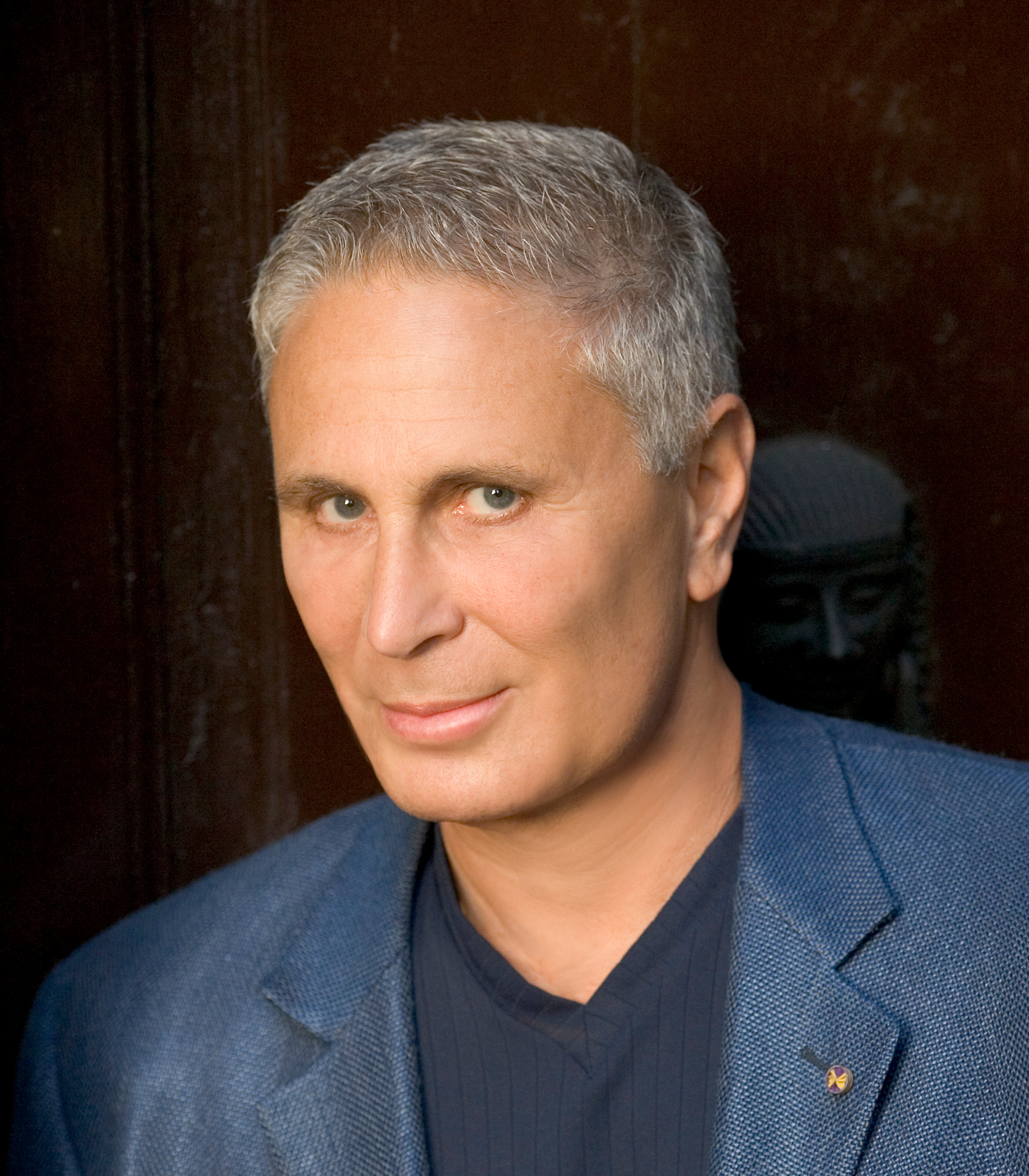
Click over Logo to Home Page
Introducing Artist VIP

John
Corigliano - Renowned American Composer, Pulitzer Prize
Recipient and Chair of Composition at the Juilliard School and Distinguished
Professor of Music at Lehman College, City University of New
York, which has established a scholarship in his name
email:
Biography
The American John Corigliano continues to add to one
of the richest, most unusual, and
most widely celebrated bodies of work any composer has created over the last
forty years.
Corigliano's scores, now numbering over one hundred, have won him the Pulitzer
Prize, the
Grawemeyer Award, three Grammy Awards, and an Academy Award (“Oscar”) and have
been performed and recorded by many of the most prominent orchestras, soloists,
and
chamber musicians in the world. Attentive listening to this music reveals an
unconfined
imagination, one which has taken traditional notions like "symphony" or
"concerto" and
redefined them in a uniquely transparent idiom forged as much from the post-war
European
avant garde as from his American forebears.
Perhaps one
of the most important symphonists of his era, Corigliano has to date written
three symphonies, each a landscape unto itself. Scored simultaneously for wind
orchestra
and a multitude of wind ensembles, Corigliano's ambitious, extravagant, and
grandly
barbarous Symphony No. 3: Circus Maximus (2004) was commissioned by the
University
of Texas at Austin Wind Ensemble, who presented it on their 2008 tour in Europe
and gave
its New York première in 2005 at Carnegie Hall. Naxos releases its stereo
recording of
Circus Maximus in January 2009, and has chosen the work as its début recording
in its
upcoming Blu-Ray format. Symphony No. 2 (2001), a rethinking and expansion of
the
surreal and virtuosic String Quartet (1995), was introduced by the Boston
Symphony
Orchestra in 2000 and earned him the 2001 Pulitzer Prize in Music. Symphony No.
1
(1991), commissioned by Meet the Composer for the Chicago Symphony Orchestra
when he
was composer-in-residence, channeled Corigliano's personal grief over the loss
of friends to
the AIDS crisis into music of immense power, color, drama, and scope: performed
worldwide by over 150 orchestras and twice recorded, this symphony earned him
the
prestigious Grawemeyer Award for Music Composition.
Corigliano’s theatricality, at
once thoughtful and innate, has vivified his eight concerti: his
most recent concerto is Conjurer (2008), for percussion and string orchestra.
Commissioned by an international consortium of six orchestras for Evelyn
Glennie, Conjurer
was introduced by the Pittsburgh Symphony in the 2007-2008 season, when the
orchestra
designated him its Composer of the Year. For Joshua Bell, Corigliano composed
Concerto
for Violin and Orchestra: The Red Violin (2005.) Developed from the themes of
the
score to the François Girard’s film of the same name, which won Corigliano an
Oscar in
1999, Concerto for Violin and Orchestra was introduced by the Baltimore Symphony
Orchestra,
under Marin Alsop and recorded by them in 2007. Vocalise (2000), an unusual
singlemovement
wordless concerto for voice, orchestra, and electronics, was commissioned for
the millennium by the New York Philharmonic: Kurt Masur led Sylvia McNair in the
work’s
première. Guitarist Sharon Isbin and the St. Paul Chamber Symphony under Hugh
Wolff
introduced Troubadours in 1994: flutist James Galway and the Los Angeles
Philharmonic
under Myung-Whun Chung gave the first Pied Piper Fantasy in 1982. Corigliano’s
kinetic
and elegant Piano Concerto (1967) in which Victor Alessandro led Hilde Somer and
the
San Antonio Symphony was his first essay in the genre; but the composer credits
his first
two concerti for solo winds with changing both his art and his career. It was
during the
composition of the Oboe Concerto (1975; Humbert Lucarelli, oboe: Kazuyoshi
Akiyama,
American Composers Orchestra) and, especially, the Clarinet Concerto (1977) that
he first
used the “architectural” method of composing which empowers him to forge a
strikingly
wide range of musical materials into arches of compelling aural logic: the
première of the
Clarinet Concerto, with Stanley Drucker and the New York Philharmonic under
Leonard
Bernstein, was by contemporary accounts the musical event of the year.
While
he has composed three large-scale works for voice and orchestra, Corigliano’s
lone
opera to date is The Ghosts of Versailles (1991), which counterposes the fiction
of Mozart
and Beaumarchais with the Reign of Terror to create a richly multilayered
meditation on the
need for, and costs of, personal and social change. The Metropolitan Opera's
first
commission in three decades, The Ghosts of Versailles succeeded brilliantly with
both critics
and audiences: the season it opened, Corigliano was elected to the American
Academy and
Institute of Arts and Letters, and Musical America named him its first-ever
"Composer of the
Year." After triumphs in Chicago, Houston, and Hannover, Germany, The Ghosts of
Versailles returns to the American stage in a newly orchestrated smaller version
in June 2009:
first scheduled by the Opera Theatre of Saint Louis, the production includes
stops in
Vancouver and the Wexford Festival on a lengthening list of future engagements.
Corigliano's two other major vocal works show a comparably lavish and powerful
sense of
vocal theatre. Mr. Tambourine Man: Seven Poems of Bob Dylan (2000) boldly
refashions texts by the iconic songwriter into a compelling monodrama, by turns
savage,
yearning, and hallucinatory; begun as a song cycle for piano and soprano in
2000, Corigliano
rescored the piece for full orchestra and amplified soprano in 2004. Its Naxos
recording, on
which JoAnne Falletta leads the Buffalo Philharmonic, was released in September
2008 and
garnered Grammy nominations both for the work itself and for its leading
interpreter, the
soprano Hila Plitmann. A Dylan Thomas Trilogy (1960, rev. 1999) revisits and
combines
three of Corigliano's earlier settings of this poet — Fern Hill (1960), Poem in
October (1970),
and Poem on His Birthday (1976) — with the late Author’s Prologue into a "memory
play in the
form of an oratorio." Scored for boy soprano, tenor, baritone, chorus, and
orchestra, A
Dylan Thomas Trilogy was recorded in spring 2008 with Leonard Slatkin conducting
Sir
Thomas Allen and the Nashville Symphony and Chorus: it was released by Naxos in
November 2008.
Corigliano is
one of the few living composers to have a string quartet named for him: its
young players banded together after an Indiana University performance of his
String
Quartet (1995,) which Corigliano wrote as a valedictory commission for the
Cleveland
Quartet and which won him that year’s Grammy Award for best contemporary
composition.
His first chamber score, his Violin Sonata (1964) is now a standard of the
American
violinist’s repertory, having been performed hundreds of times and recorded
dozens since
the Spoleto Festival awarded the piece first prize in its inaugural Chamber
Music
Competition: his newest is Winging It: Improvisations for Solo Piano (2008), to
be
introduced by Ursula Oppens in February 2009. It joins in his keyboard catalogue
the
virtuoso showpieces Etude Fantasy (1976) and Fantasia on an Ostinato (1985) for
solo
piano, and the unique Chiaroscuro (1997), for two pianos tuned a quarter-tone
apart. Also
upcoming is the August 2009 première in Sydney, Australia, of Corigliano’s new
arrangement of Mr. Tambourine Man (2009) for voice and Pierrot ensemble, which,
like
the version of Poem on His Birthday for tenor and eight instruments (1970),
casts these
orchestral pieces for chamber ensemble with no loss of force. Phantasmagoria
(2000),
revisits themes from The Ghosts of Versailles for cello and piano; Fancy on a
Bach Air
(1996) varies Bach for solo cello. His earliest songs form the cycle The
Cloisters, (1965)
written with William M. Hoffman, who also wrote the libretto to The Ghosts of
Versailles: his
latest are a trio of Cabaret Songs to the lyrics of opera composer-librettist
Mark Adamo
(End of the Line, Marvelous Invention, and Dodecaphonia (or, They Call Her
Twelve-Tone Rose)
introduced by William Bolcom and Joan Morris.
Corigliano
serves on the composition faculty at the Juilliard School of Music and holds the
position of Distinguished Professor of Music at Lehman College, City University
of New
York, which has established a scholarship in his name. Born in 1938 to John
Corigliano Sr.,
a former concertmaster of the New York Philharmonic, and Rose Buzen, an
accomplished
pianist and educator, Corigliano has lived in New York City all his life: for
the past fourteen
years he and his partner, Mark Adamo, have divided their time
between Manhattan and Kent Cliffs, New York.
Message from John Corigliano
Agendas and Performance and Teaching Philosophy
Copyright © 1999 WKA-Clarinet.org. All rights reserved.
Revised: January 12, 2019